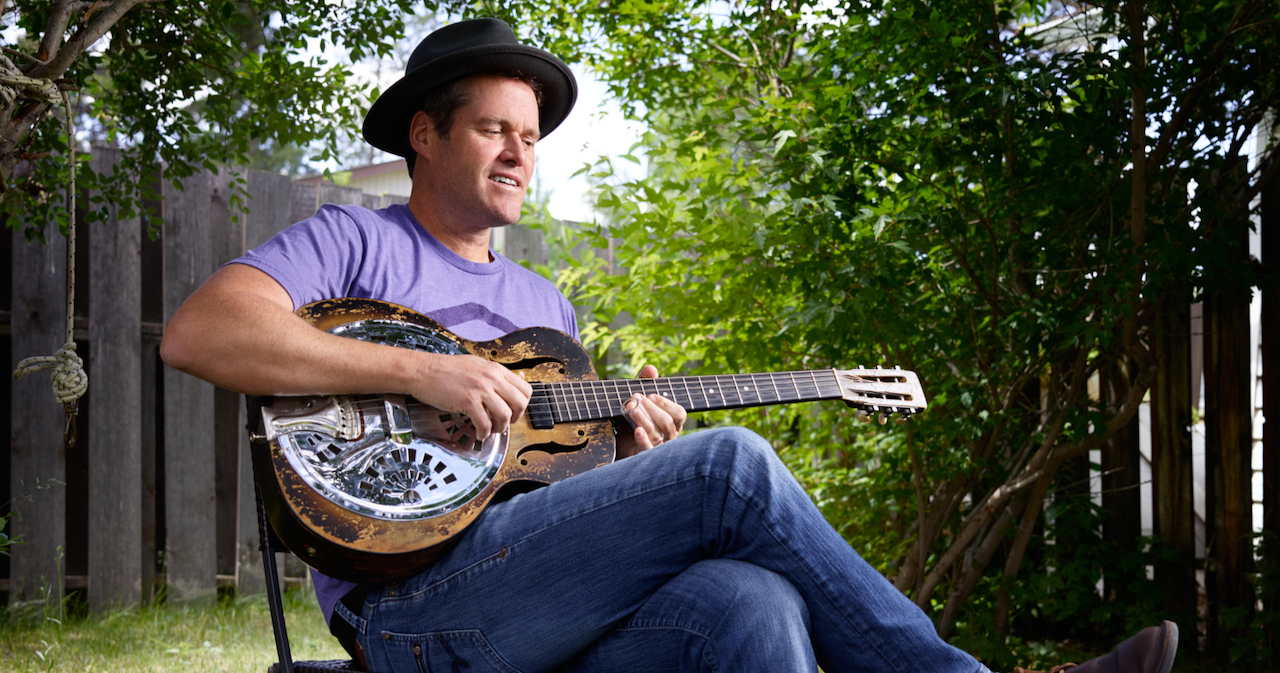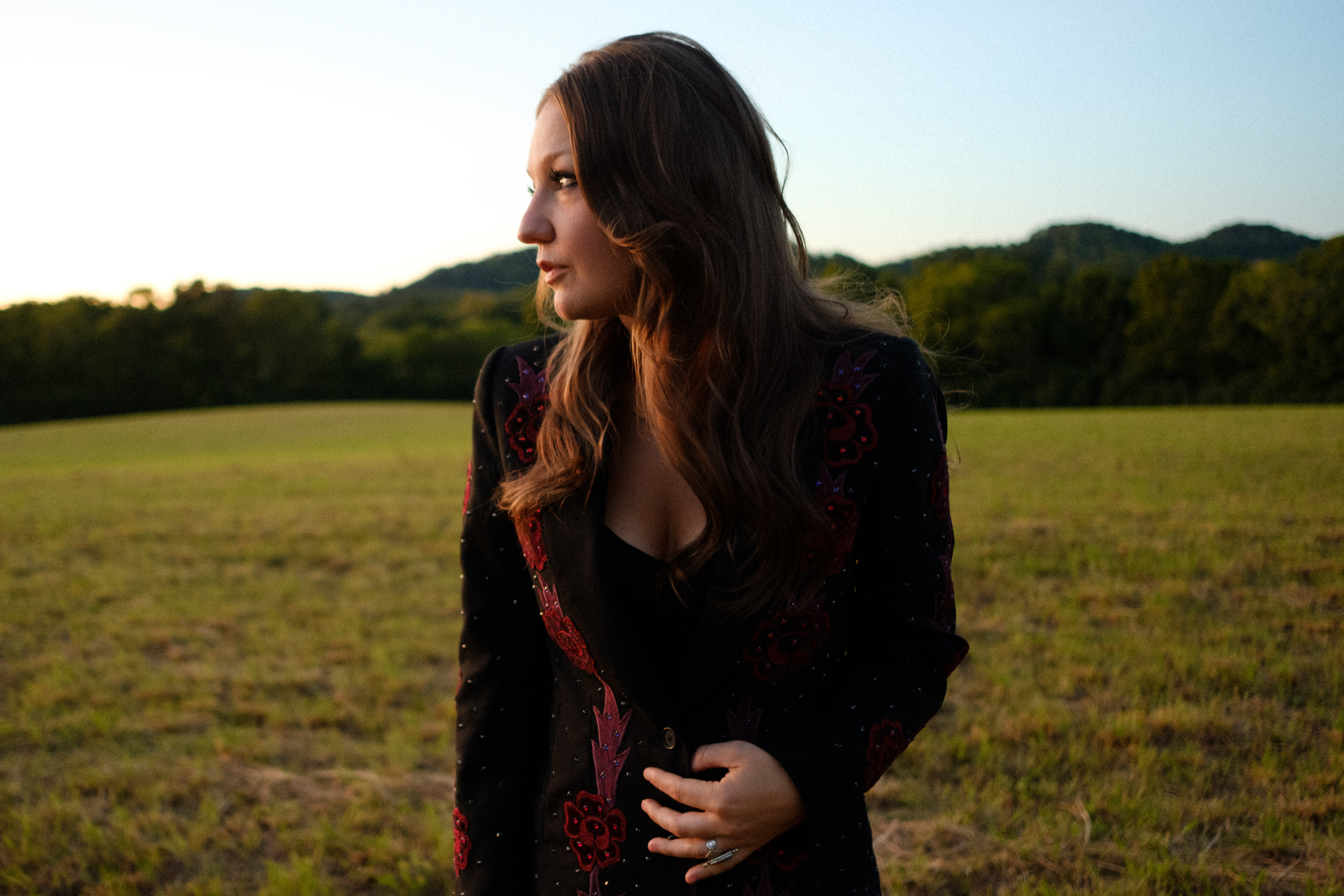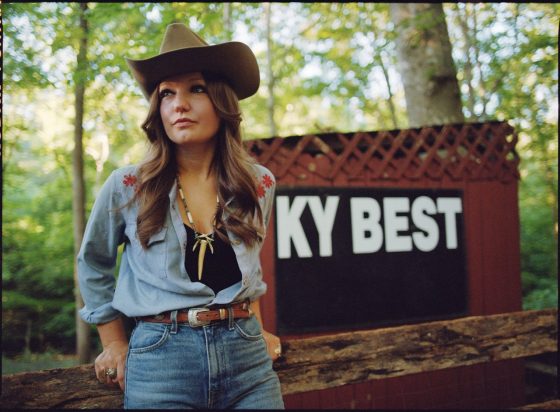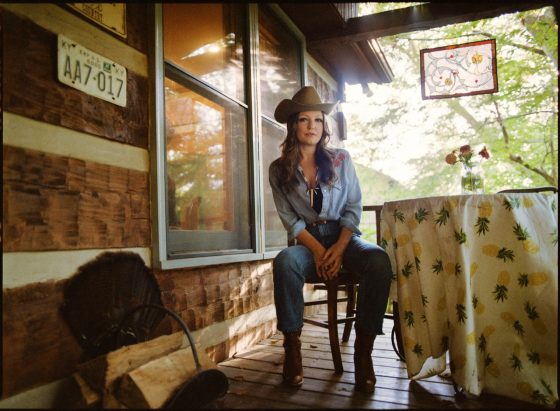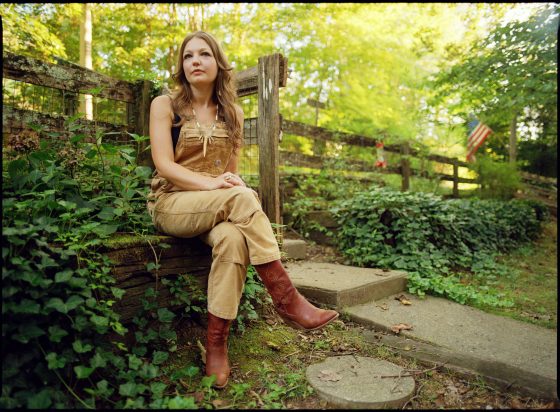Singer-songwriter and guitarist Gordie Tentrees didn’t begin his career as a globe-trotting performer until he moved to a vibrant, supportive music city – that is, Whitehorse, Yukon. In a town of approximately 40,000, there’s long been a bustling musical economy, one that supported Tentrees even before he had released any recordings.
Place – whether rural northern Canada, or the far reaches of New Zealand or western Europe or Australia – informs so much of Tentrees’ writing and music-making, especially on his most recent release, 2021’s Mean Old World. With a global perspective and a local level of care, he unspools big, often daunting political and social questions with humor, intention, and aplomb. Child welfare, Indigenous rights, solidarity, working class issues, and more are packaged in tidy honky-tonking, blues-inflected, string band songs, making these sometimes gargantuan pills that much easier to swallow.
That Tentrees prioritizes community, building bridges, and human connection in his music makes it that much more compelling. He uses his rural, multi-ethnic hometown as an entry point, a doorway, through which he not only brings folks into his own world, but brings his world to them, too. And in doing so, even with an album titled Mean Old World, he reminds us that living on this earth doesn’t always have to be so forbidding, exclusive, and mean. BGS connected with Gordie Tentrees via phone, while he picked up his Indigenous daughter from school on his bicycle, to discuss this recent album.
BGS: I wanted to start by asking you about place. I’ve been obsessed with place these days, especially as it relates to music and music-making. I was struck by the fact that you didn’t begin songwriting or performing until you moved to the Yukon. How did moving there inform your music-making? To me, it feels like there’s a strong sense of place on this record.
Gordie Tentrees: Well, I blame the Yukon – I credit the Yukon as well as blame it [Laughs] – for the path I’m on. It is a good conduit and supportive community that encourages the arts. Writing songs and playing an instrument is something that’s seen as a valued occupation, one that’s sort of embraced and lifted up. It’s not hard to get on the stage here. Early on, when I started playing, I hadn’t even made my first record yet and I was headlining some northern festival stages. [The Yukon] really gives you a chance to get on a stage and expose yourself to audiences like that. I really believe if I had lived anywhere else in Canada or the world I wouldn’t have been given so much time on the stage.
The other thing is that a lot of people spend their time creating art here and writing songs here – there are a lot of songwriters here. It’s a highly valued thing. I live in a community full of writers and songwriters. That’s really supported and endorsed. You can knock on someone’s door if you want to learn an instrument and they’ll show it to you. There aren’t barriers for those that are aspiring to be songwriters or musicians. It’s quite wonderful.
At one point, in our little community of 40,000 people – Whitehorse, Yukon, where I live – we even had up to 25 music venues at various points, all happening. One thing about Whitehorse that not many people know is that it has the highest number of musicians per capita that actually make a living from music in Canada.
As much as the Yukon has informed your music-making, you travel so much and you play so many shows all around the world, so while there’s this strong sense of place in this album, Mean Old World, I do sense that it’s also informed by your travels. “Danke” clearly references this. How has the cross-pollination of the Yukon and your travels created the musical aesthetic you have now?
I think that’s attributed to what I do, as far as being a performer and musician. I get to go to different parts [of the world] because I’m not just a songwriter and play various instruments. For example, if I play in English-speaking countries they like the songs and the stories. Countries where English is a second, third, fourth language they rely more on melody and stuff like that, so if you have a show that sort of hits people both ways, it allows you to travel as much as I have. Which I really sort of figured out early on, you can play in all these different markets and do different things because you’re not just a one-trick pony.
As far as playing different genres, there are so many genres of music here in the Yukon; it goes from jazz, blues, and hip-hop to funk music. I get often put into a country festival, bluegrass festival, or a folk festival as the guy who’s kind of on the edge of all those things. But it also touches on all those things. That’s allowed me to travel all over the place and sort of steal genres from all of the artists that have inspired me, whether it’s Southern and Delta blues music or Eastern Romanian dirges.
We are The Bluegrass Situation, so I would be remiss if I didn’t ask you about the bluegrass influences I hear on Mean Old World. I wonder where they stem from for you? It sounds like that type of rural bluegrass that is genre-less and draws from many influences.
Because I’m a guitar player, I’m drawn to flatpicking. I went, “Okay, bluegrass, this genre is like high-speed chess.” Like high speed math along with jazz. We have a local bluegrass festival up here so it’s all around. String band music is quite popular up here. Where I live in the Yukon you’re exposed to it from the jazz scene to the bluegrass scene. If you know music from those genres at all, that’s sort of enveloped and absorbed by the people who live here.
I wanted to ask you about the stories that went into “Mean Old World” and “Every Child,” not only your own experience in foster care, but also your experience of raising your Indigenous daughter and how that’s informed these songs. Partially because I think these are really heavy sort of big topics, but the way you approach them feels very grounded and very real.
It was all inspired by one song that I wrote, the title track, “Mean Old World.” The song was really about the best interests of every child, which I believe are health, safety, and happiness. Regardless of your background, politics, or the current state of the world, I think those are the most important things. That song is inspired by that, following my journey as a foster child from a broken home and going through the social services system and then also becoming a foster parent to our daughter six years ago. We had no idea [what we were doing], it was a really educational experience. Where I live in the Yukon, 50 percent of the community is Indigenous. I’m not Indigenous, my background is actually Irish. We’re very lucky that we’re educated and exposed to these experiences and our families and our communities – Indigenous or non-Indigenous – are affected by it. So we come together and support each other.
Through my daughter, being a parent of a female is one thing. It’s difficult for females in this world, [especially] one with brown skin. I think I keep it really simple and I think about what she faces every day and how she would get passed over or looked upon as a child that might need more work or more time, even if she was ahead of everybody else, because of the color of her skin and because of her background. Once that’s in your home, and you’ve experienced that, it’s pretty alarming! At the same time, we’re so grateful that we’ve had this experience and have realized that as parents we are here to bridge the gap between my daughter and her birth parents and her birth family. To build that human capacity to bridge that space that’s been created due to trauma.
You also bring a lot of lightness – levity, humor, and joy – into your music-making. Why is that important to you in the context of these kind of bigger, sometimes daunting topics?
When I was a kid, humor was a defensive coping mechanism to get through all the darkness. There were always pretty dark situations that were absurd, and if you could bring some light to it, it always made it easier to deal with. I felt like I was a witness and a passenger to my broken childhood and an observer. I watched it all and would kind of make light-hearted jokes about it even though it was painful, to get through it. I find that humor is my constant companion, also recognizing that even though I use it a lot I still have to deal with some of the reasons that I use it.
One of my favorite writers from early on was John Prine. I heard him in my house when I was a kid, and the way he can use heavy subjects: “There’s a hole in Daddy’s arm where all the money goes.” Everything from that ranging to, “Swears like a sailor when she shaves her legs.” That kind of humor in his songs is something as a kid that I grew up knowing was possible. You can use humor for these heavy subjects. I have a song on my last record called “Dead Beat Dad.” I felt it was ahead of its time because it shocked the audience, at least until I had them in my hand. I would shock them, a little jolt. Just to push them, give them a little poke. Now that song, those taboos are more behind us now. I want to take people down those roads, but I also want to bring them back, usually with humor.
The quality of the music, being that sort of honky-tonk country meets a back porch jam, really communicates that your priority is establishing these relationships with your audiences so you can have these bigger conversations.
A lot of my audience is a rural audience, teaching, sharing with them that yes, you can grow up in those places and it’s okay. Everything’s going to be okay, you’re going to be okay. You’re going to grow and it’s never too late to learn. It’s just never too late. Once you stop learning, that’s when we’re all in trouble. I’ll have these conversations, most of my audience is rural communities and they’ll expect me to do this hillbilly, honky-tonk, “hold my beer while I kiss your wife” nonsense and I can open the door with that and then they’ll be like, “Wait a minute, he’s not singing about beer, he’s singing about… Whoa!” I love having that effect. I love going through that doorway.
I recognize my role when I go around night to night in whatever country it is, I realize I walk in and I can lift, change, alter a lot of people’s lives in a short amount of time. I can do it over and over again, repeatedly, and I get to go to bed at night and go, “Wow. That felt pretty good.” I’m really enjoying it. I’m enjoying it more now than I have in the sixteen years I’ve been doing this. I feel really grateful that there’s a place for me – I feel like there’s more of a place for me now than there’s ever been. I’m just so lucky. I get to be a small helper in a larger community.
Photo credit: GBP Creative
